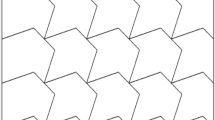Abstract
We consider a control system containing a constant three-dimensional vector parameter, the approximate value of which is reported to the control person only at the moment of the movement start. The set of possible values of unknown parameter is known in advance. An convergence problem is posed for this control system. At the same time, it is assumed that in order to construct resolving control, it is impossible to carry out cumbersome calculations based on the pixel representation of reachable sets in real time. Therefore, to solve the convergence problem, we propose to calculate in advance several resolving controls, corresponds to possible parameter values in terms of some grid of nodes. If at the moment of the movement start it turns out that the value of the parameter does not coincide with any of the grid nodes, it is possible to calculate the program control using the linear interpolation formulas. However, this procedure can be effective only if a linear combination of controls corresponding to the same “guide” in the terminology of N.N. Krasovskii’s Extreme Aiming Method is used. In order to be able to effectively apply linear interpolation, for each grid cell, we propose to calculate 8 “nodal” resolving controls and use the method of dividing control into basic control and correcting control in addition. Due to the application of the latter method, the calculated solvability set turns out to be somewhat smaller than the actual one. But the increasing of accuracy of the system state transferring to the target set takes place.
This research was supported by the Russian Science Foundation (grant no. 19-11-00105, https://rscf.ru/en/project/19-11-00105/).
Access this chapter
Tax calculation will be finalised at checkout
Purchases are for personal use only
Similar content being viewed by others
References
Lee, E.B., Markus, L.: Foundations of Optimal Control Theory. Wiley, New York (1967)
Sethi, S.P., Thompson, G.L.: Optimal Control Theory: Applications to Management Science and Economics. Springer, New York (2007). https://doi.org/10.1007/0-387-29903-3
Ferretti, R.: High-order approximations of linear control systems via Runge-Kutta schemes. Computing 58(4), 351–364 (1997). https://doi.org/10.1007/BF02684347
Veliov, V.M.: Second order discrete approximation to linear differential inclusions. SIAM J. Numer. Anal. 29(2), 439–451 (1992). https://doi.org/10.1137/0729026
Guang, D.H., Mingzhu, L.: Input-to-state stability of Runge-Kutta methods for nonlinear control systems. J. Comput. Appl. Math. 205(1), 633–639 (2007). https://doi.org/10.1016/j.cam.2006.05.031
Baier, R.: Selection strategies for set-valued Runge-Kutta methods. In: Li, Z., Vulkov, L., Waśniewski, J. (eds.) NAA 2004. LNCS, vol. 3401, pp. 149–157. Springer, Heidelberg (2005). https://doi.org/10.1007/978-3-540-31852-1_16
Novikova, A.O.: Construction of reachable sets for two-dimensional nonlinear control systems by pixel method. Prikladnaya Matematika i Informatika 50, 62–82 (2015). [in Russian]
Gornov, A.Y., Filkenstein, E.A.: Algorithm for piecewise-linear approximation of the reachable set boundary. Autom. Remote Control 76(3), 385–393 (2015). https://doi.org/10.1134/S0005117915030030
Ershov, A.A., Ushakov, A.V., Ushakov, V.N.: Two game-theoretic problems of approach. Sbornik: Mathematics 212(9), 1228–1260 (2021). https://doi.org/10.1070/SM9496
Wei, L., Taotao, L., Chen, W., Ya, D.: A dimensionality reduction method for computing reachable tubes based on piecewise pseudo-time dependent Hamilton-Jacobi equation. Appl. Math. Comput. 441(127696), 1–13 (2023). https://doi.org/10.1016/j.amc.2022.127696
Filkenstein, E.A., Gornov, A.Yu.: Algorithm for quasi-uniform filling of reachable set of nonlinear control system. Bull. Irkutsk State Univ. Ser. Math. 19, 217–223 (2017). https://doi.org/10.26516/1997-7670.2017.19.217
Nikol’skii, M.S.: A control problem with a partially known initial condition. Comput. Math. Model. 28(1), 12–17 (2017). https://doi.org/10.1007/s10598-016-9341-2
Veliov, V.M.: Parametric and functional uncertainties in dynamic systems local and global relationship. In: Computer Arithmetic and Enclosure Methods, North-Holland, Amsterdam, pp. 1–14 (1992)
Kurzhanskii, A.B.: Control and Observation in Conditions of Uncertainty. Naika, Moscow (1977). [in Russian]
Ershov, A.A.: Linear parameter interpolation of a program control in the approach problem. J. Math. Sci. 260(6), 725–737 (2022). https://doi.org/10.1007/s10958-022-05724-z
Ushakov, V., Ershov, A., Ushakov, A., Kuvshinov, O.: The problem of guidance the integral funnel to the target set. In: 2022 16th International Conference on Stability and Oscillations of Nonlinear Control Systems (Pyatnitskiy’s Conference), pp. 1–2. IEEE, Moscow (2022). https://doi.org/10.1109/STAB54858.2022.9807579
Bressan, A., Piccoli, B.: Introduction to the Mathematical Theory of Control. American Institute of Mathematical Sciences, New York (2007)
Mikhlin, S.G.: Course of Mathematical Physics. Nauka, Moscow (1968). [in Russian]
Demidovich, B.P., Maron, I.A.: Fundamentals of Computational Mathematics. Nauka, Moscow (1966). [in Russian]
Ushakov, V.N., Ershov, A.A. On the solution of control problems with fixed terminal time. Vestnik Udmurtskogo Universiteta. Matematika. Mekhanika. Komp’yuternye Nauki 26(4), 543–564 (2016). [in Russian]
Lizorkin, P.I.: Course in Differential and Integral Equations with Additional Chapters of Analysis. Nauka, Moscow (1981). [in Russian]
Acknowledgements
This research was supported by the Russian Science Foundation (grant no. 19-11-00105, https://rscf.ru/en/project/19-11-00105/).
Author information
Authors and Affiliations
Corresponding author
Editor information
Editors and Affiliations
Rights and permissions
Copyright information
© 2023 The Author(s), under exclusive license to Springer Nature Switzerland AG
About this paper
Cite this paper
Ushakov, V.N., Ershov, A.A., Ershova, A.A., Alekseev, A.V. (2023). Linear Interpolation of Program Control with Respect to a Multidimensional Parameter in the Convergence Problem. In: Khachay, M., Kochetov, Y., Eremeev, A., Khamisov, O., Mazalov, V., Pardalos, P. (eds) Mathematical Optimization Theory and Operations Research: Recent Trends. MOTOR 2023. Communications in Computer and Information Science, vol 1881. Springer, Cham. https://doi.org/10.1007/978-3-031-43257-6_24
Download citation
DOI: https://doi.org/10.1007/978-3-031-43257-6_24
Published:
Publisher Name: Springer, Cham
Print ISBN: 978-3-031-43256-9
Online ISBN: 978-3-031-43257-6
eBook Packages: Computer ScienceComputer Science (R0)




